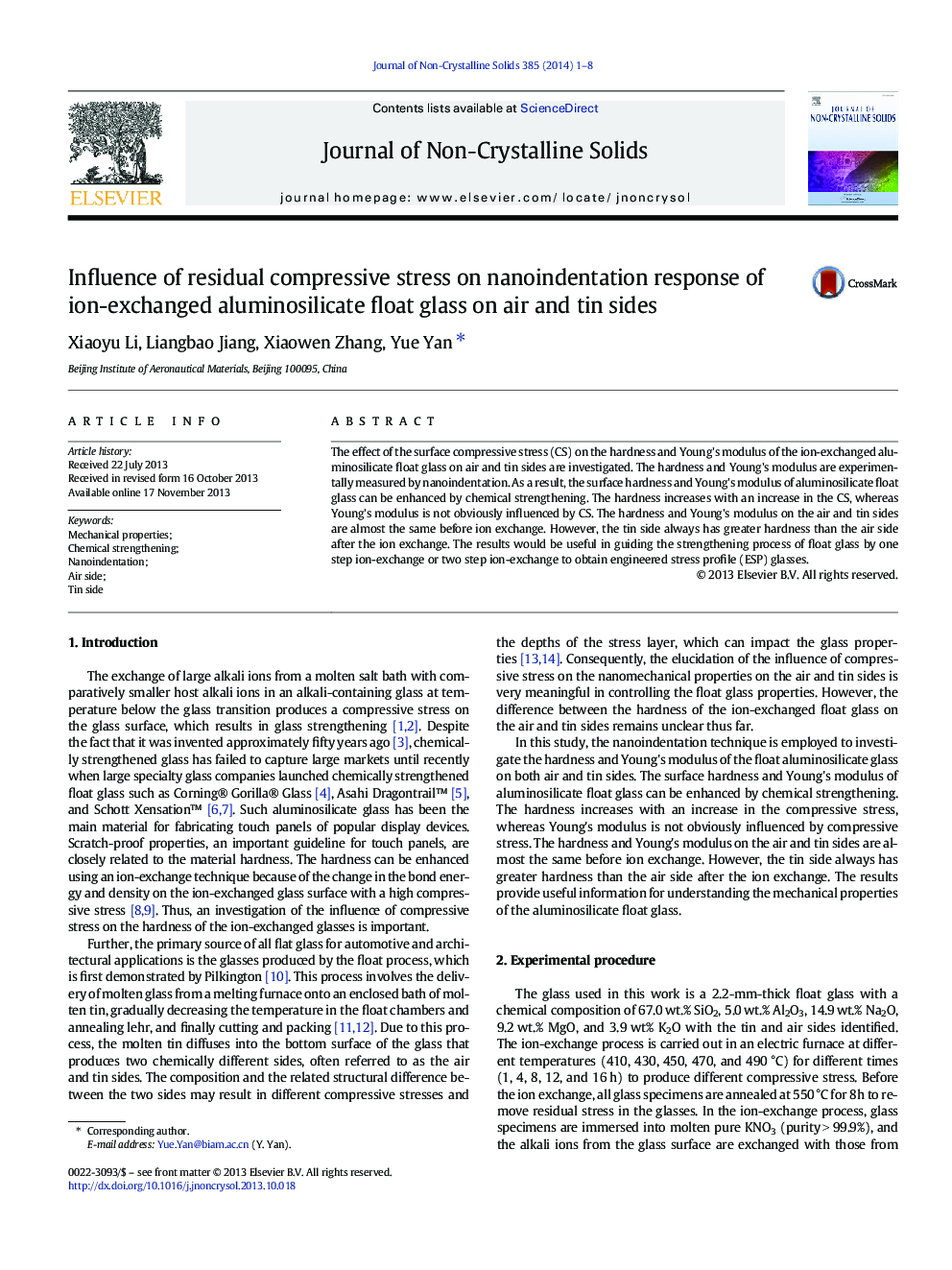| Article ID | Journal | Published Year | Pages | File Type |
|---|---|---|---|---|
| 1481130 | Journal of Non-Crystalline Solids | 2014 | 8 Pages |
•The hardness increases with an increase in the compressive stress.•The hardness of the raw glass on the air and tin sides is almost the same.•The hardness difference of the air and tin sides increases after ion exchange.
The effect of the surface compressive stress (CS) on the hardness and Young's modulus of the ion-exchanged aluminosilicate float glass on air and tin sides are investigated. The hardness and Young's modulus are experimentally measured by nanoindentation. As a result, the surface hardness and Young's modulus of aluminosilicate float glass can be enhanced by chemical strengthening. The hardness increases with an increase in the CS, whereas Young's modulus is not obviously influenced by CS. The hardness and Young's modulus on the air and tin sides are almost the same before ion exchange. However, the tin side always has greater hardness than the air side after the ion exchange. The results would be useful in guiding the strengthening process of float glass by one step ion-exchange or two step ion-exchange to obtain engineered stress profile (ESP) glasses.
